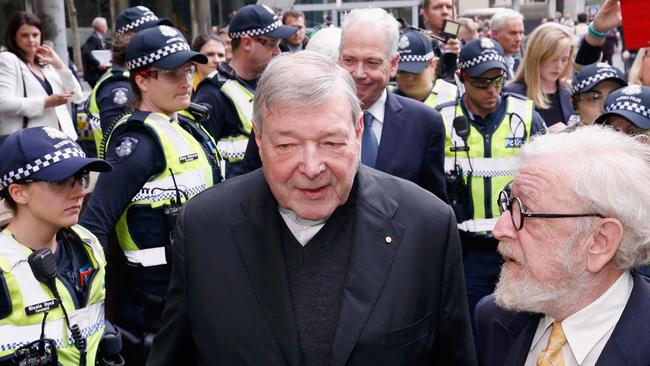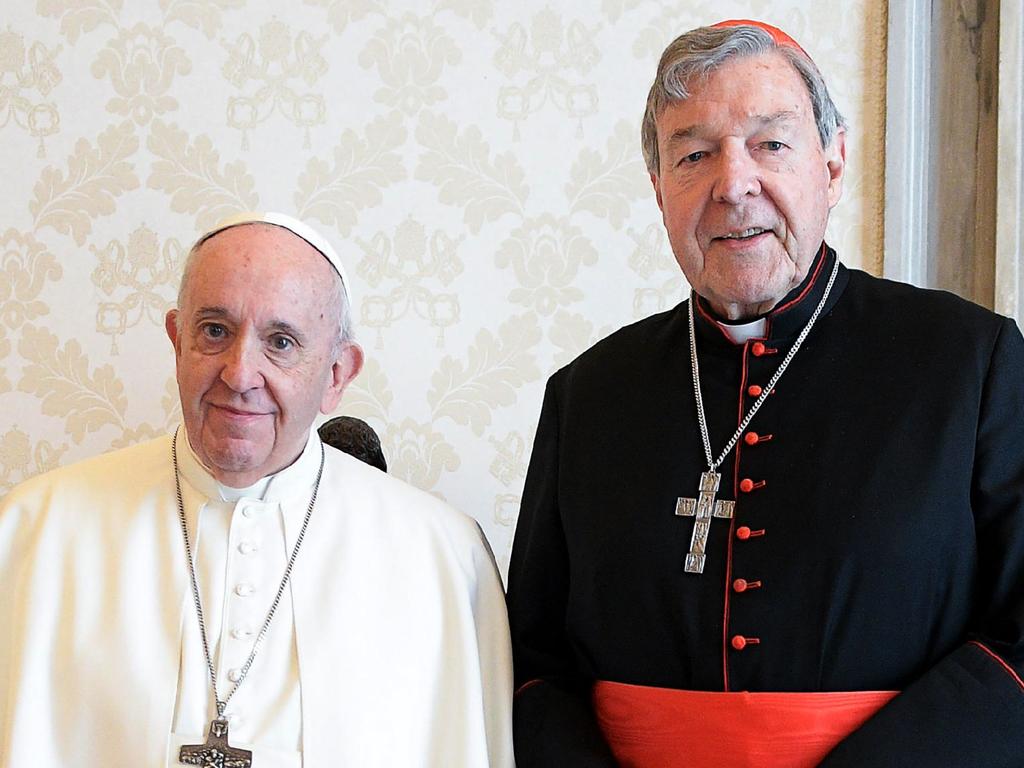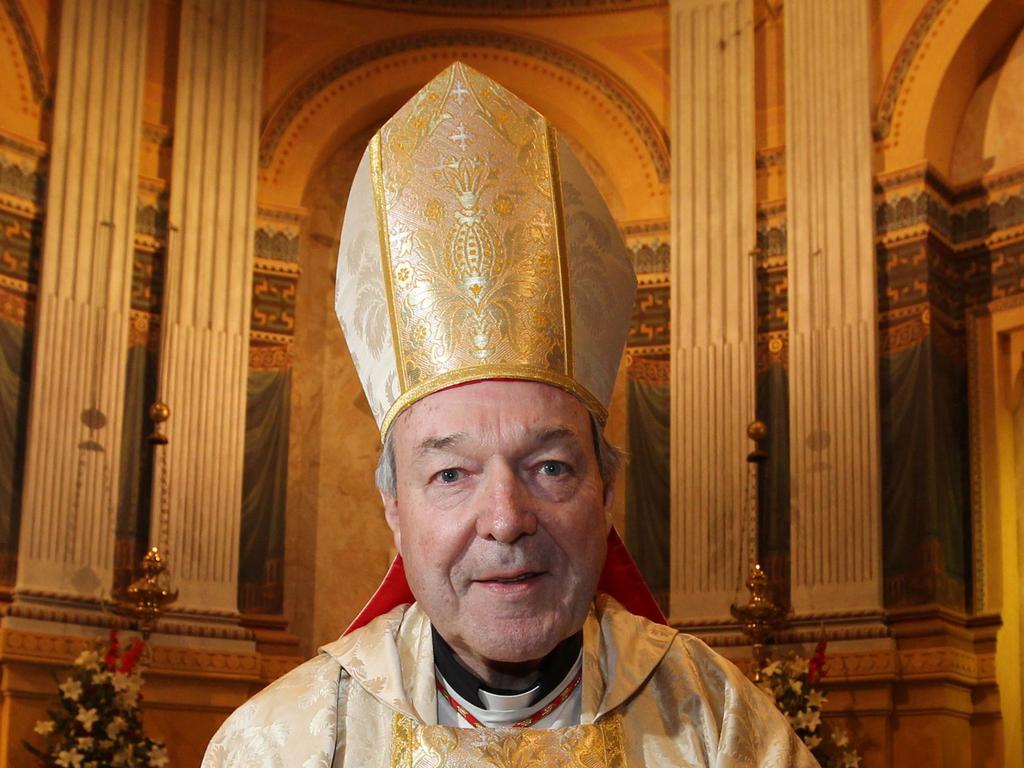Media pile-on fuelled by flawed commission
It became all but impossible for George Pell to get a fair trial due to media coverage of the royal commission into the institutional response to child sexual abuse.

I spoke about the huge media pile-on against Pell which was led initially by the ABC and the (then) Fairfax Limited newspapers The Age and The Sydney Morning Herald. They were later joined by Channel 9, The Guardian Australia, Channel 10 and The New Daily – and more besides.
Not every media outlet was unremittingly hostile to Pell – but most were. This commenced when Pell was appointed archbishop of Melbourne in 1996, continued when he took up a similar role in Sydney in 2001 and ramped up when Pell became the Vatican’s Prefect of Secretariat for the Economy (effectively the Holy See’s treasurer).
The media’s criticism of Australia’s most senior Catholic was fuelled by reports from the Royal Commission into Institutional Response to Child Sexual Abuse headed by former NSW Supreme Court justice Peter McClellan KC. Its operations ran from January 2013 to December 2017.
The royal commission was established to report on the responses of all Australian institutions into child sexual abuse. It turned out, however, that its focus was on Christian institutions – in particular the Catholic and Anglican churches. For example, in Tasmania, McClellan and his fellow commissioners conducted two case studies.
The royal commission examined the Hutchins School (which has a connection with the Anglican Church) and the Church of England Boys’ Society. In recent years, the Tasmanian government has established commissions of inquiry into government schools, a hospital and a youth detention centre – which were places of historical child sexual abuse. All of which were overlooked by the royal commission.
Paul Collins, the former Catholic priest and one-time ABC presenter, was no ally of Pell. However, in December 2017 he wrote in Pearls & Irritations that “the royal commission focused unduly on Catholicism”.
The royal commission devoted most of its attention to the Catholic Church – and Pell was in the witness box a total of around 35 hours. On occasions, he was treated with evident hostility.
It would have been difficult for Pell to receive a fair trial (which later eventuated) in view of the media pile-on in evidence since 1996. But this became all but impossible due to the media coverage of the royal commission.
In the event, in June 2017 Victoria Police charged Pell with 26 historical child abuse charges ranging from the mid-1970s in Ballarat to the mid-1990s in Melbourne.
Graham Ashton, then Victoria Police’s chief commissioner, referred on radio to Pell’s “victims” even before he had been charged, much less convicted.
Ashton simply accepted the allegations against Pell run by journalist Louise Milligan on the ABC TV program 7.30 on July 27, 2016.
This came as no surprise since Victoria Police had set up a task force investigating Pell even before any complaint had been made against him.
In time, none of the charges prevailed. But Ashton went on the media again to say that Victoria Police had done a good job. It was like a coach of one of the rugby codes claiming victory after a 26 to zero points loss.
Only five out of the 26 charges made it to trial. A jury in the first trial could not reach a verdict. The second jury convicted Pell of all five charges – despite the fact that one of the charges had never been investigated by Victoria Police.
The Victorian Court of Appeal upheld the jury verdict by a two-to-one majority. But the dissent by Justice Mark Weinberg was devastating in content.

In time, the High Court of Australia – in a unanimous decision – quashed all charges and Pell was released, having served 405 days in a maximum-security prison. The hearings demonstrated that the Victorian Director of Public Prosecutions could not demonstrate how the alleged offences could have taken place.
It soon became clear that some journalists who led the media pile-on against Pell did not accept the High Court decision. This is evident in the comments of Milligan (ABC), Lucie Morris-Marr (The New Daily) and Melissa Davey (The Guardian Australia). David Marr (then writing for The Guardian) did accept the decision while remaining a Pell critic.
However, the media pile-on against Pell continued. He could no longer be plausibly depicted as a pedophile. But Pell’s critics now focused on the royal commission’s findings that Pell had been remiss in handling child sexual abuse when he was a priest, a bishop and an archbishop in Ballarat, Melbourne and Sydney respectively. They relied on the royal commission’s report.
In Chapter nine of my book Cardinal Pell, the Media Pile-On & Collective Guilt (Connor Court, 2021), I document that the royal commission’s report with respect to Pell contains errors and a number of serious inconsistencies. Moreover, it did not produce any oral or documentary evidence in making its hostile findings against Pell. Instead, the royal commission found that Pell’s evidence was, variously, “inconceivable”, “implausible”, “not tenable”, “unlikely” and so on. These were opinions only, unsupported by evidence.
No one has challenged any of my criticisms of the royal commission’s findings with respect to Pell. Likewise, none of the Pell antagonists criticised by me have identified any errors in my book.
Pell’s critics prefer to ignore or downplay the High Court’s unanimous decision and run with the royal commission’s findings – concerning which Pell had no right of appeal or even an opportunity to respond in the body of the report. Royal commissions are not courts of law.
In my speech in Sydney, I made the point that, despite spending a year in jail, Pell needed a unanimous High Court judgment to minimise the campaign against him and totally discredit the falsehood that he was a pedophile.
When we met at lunch, I said to Pell that I hoped he was not upset at my comment. He replied that he had thought about this himself. Pell added that, without time in effective solitary confinement, he would never have written his three-volume Prison Journal (Ignatius Press).
It’s a fine piece of writing which contains a strong spiritual message about how to prevail against injustice without surrendering hope.
Gerard Henderson is executive director of the Sydney Institute.








It was a morning in mid-July when I last had an in-person conversation with Cardinal George Pell. We both addressed a conference of Catholic priests in suburban Sydney. His topic was The Church and its future – mine, The Pell case and the media.